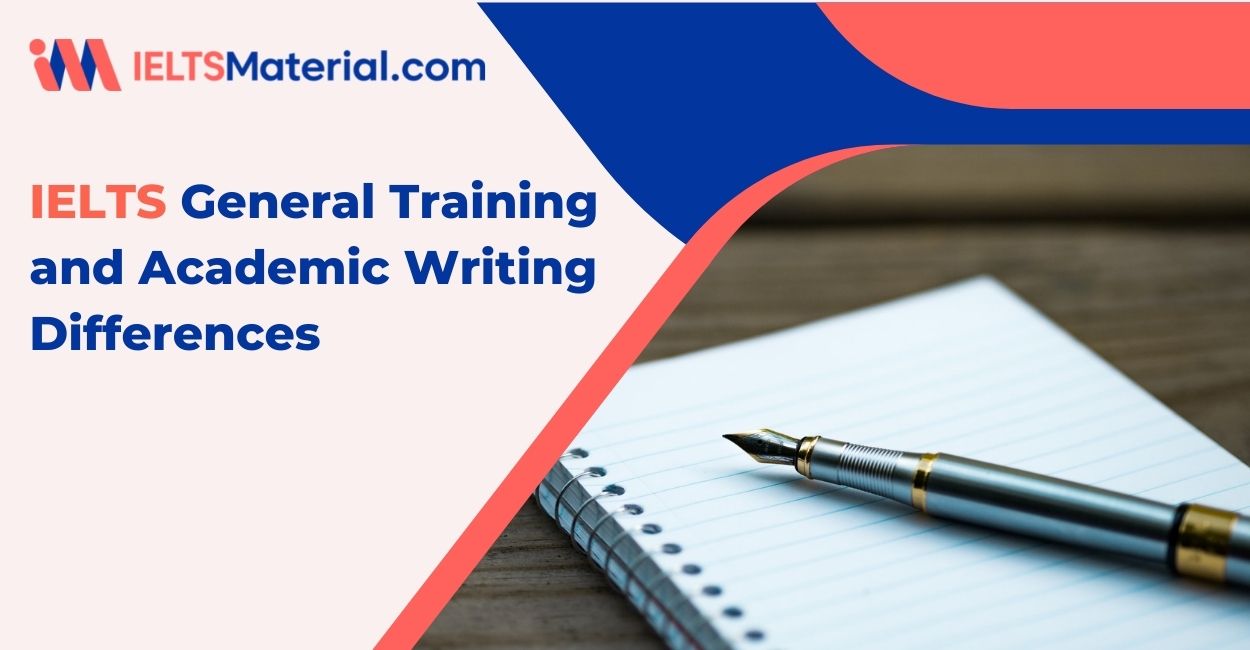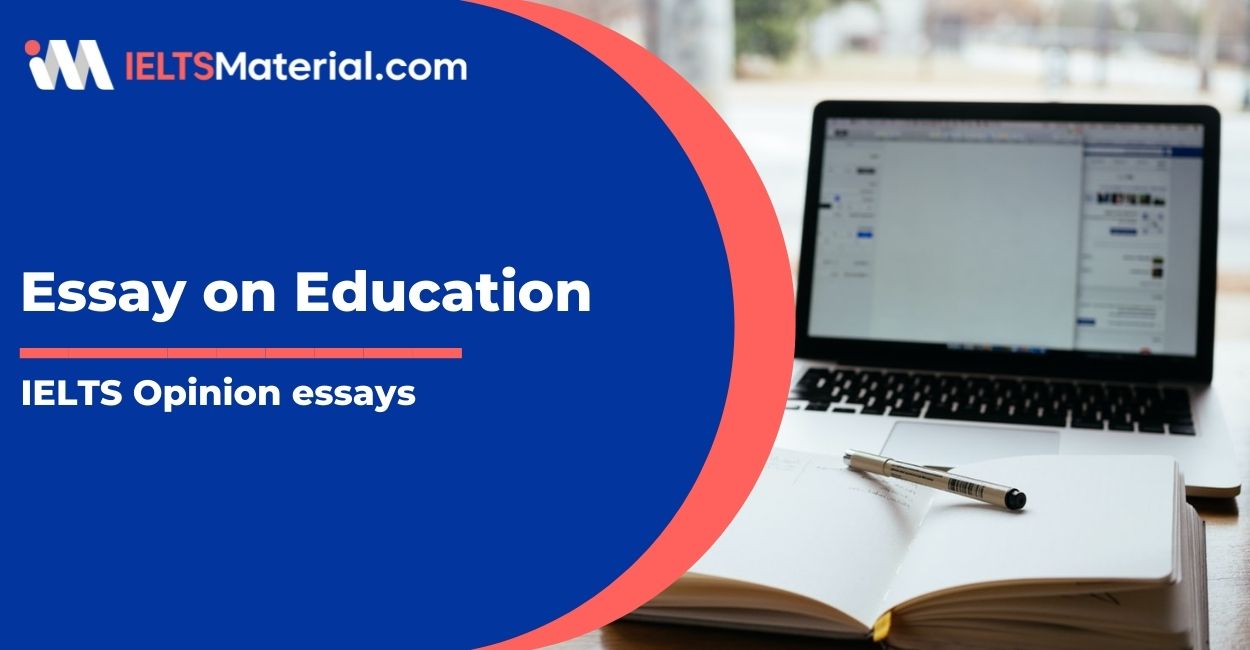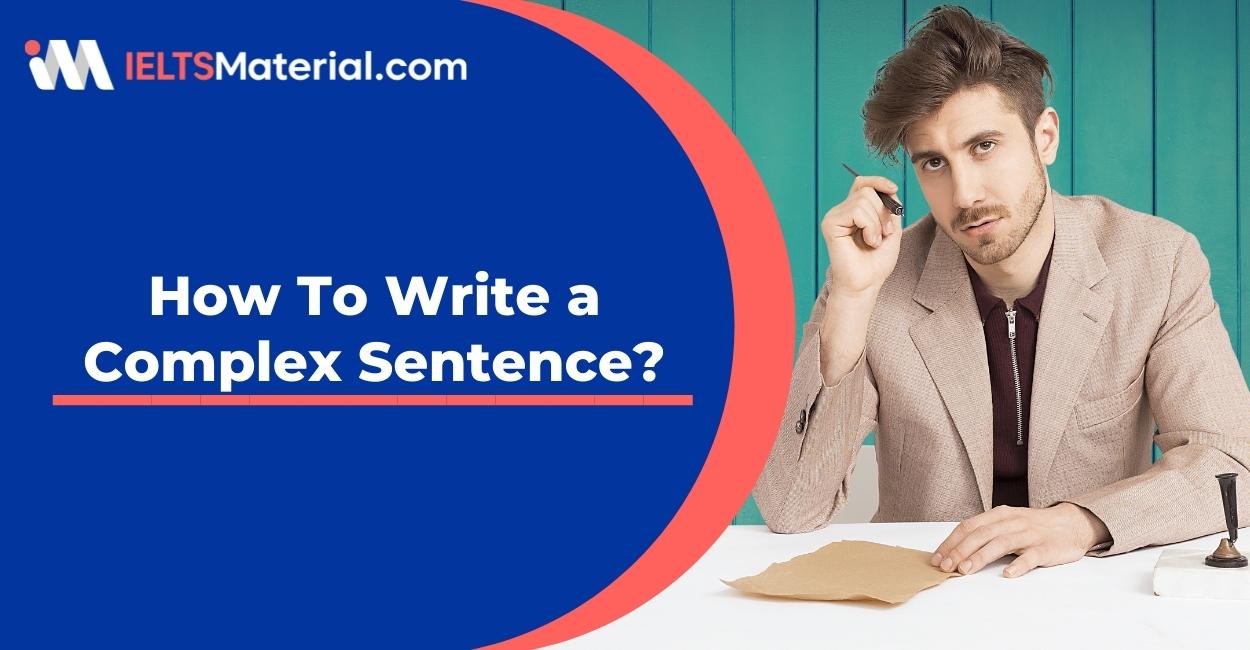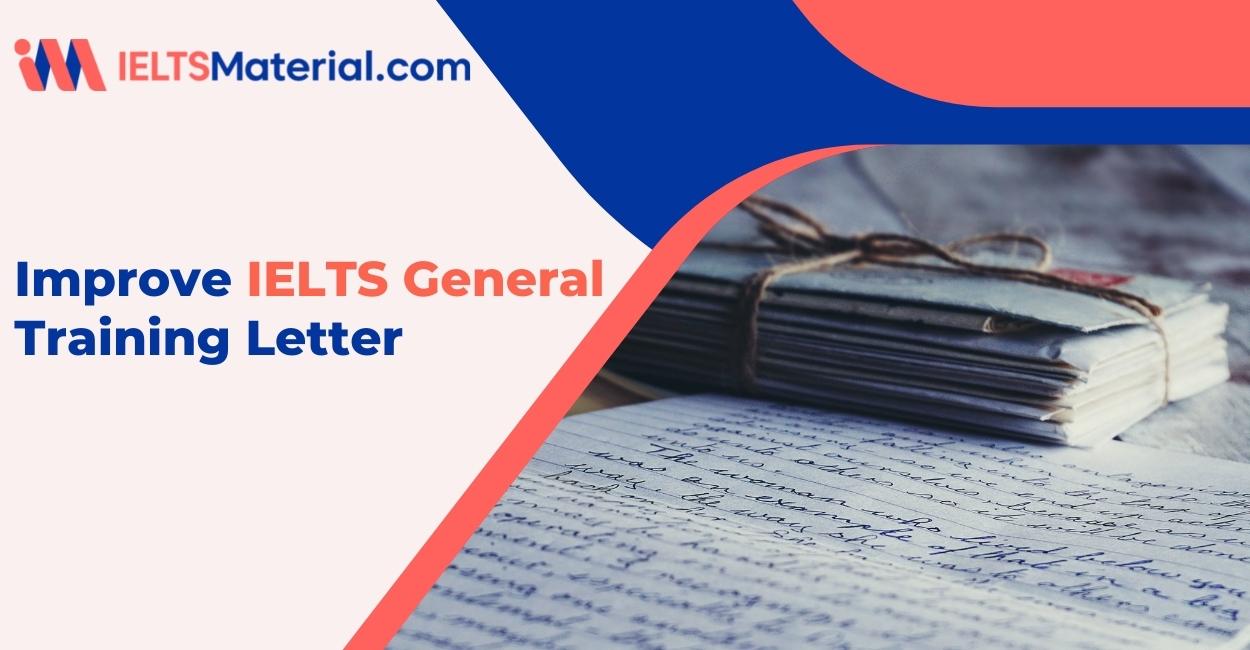IELTS General Training and Academic Writing Differences
Table of Contents
Limited-Time Offer : Access a FREE 10-Day IELTS Study Plan!
Decided to take the IELTS exam, but not sure what category you fall in?
Are you trying to know the difference between Academic and General Writing tasks? Don’t worry. We got you covered.
Understanding the difference
IELTS Academic: IELTS Academic exam is for individuals who wish to go to English-speaking countries for higher education purposes.
IELTS General: IELTS General training exam is for those who wish to migrate to English-speaking countries for training or work.
How are the exams different?
Both General Training and Academic exams evaluate your English proficiency skills based on 4 parameters – Speaking, Listening, Reading, and Writing.
Speaking
The General Training speaking exam is the same as the Academic exam. In both exams, there is a face-to-face interview with the IELTS examiner.
Listening
The General Training listening exam is also the same as the Academic exam. There are 4 audio recordings played in both the exams and 40 questions are asked based on them.
Reading
The General Training Reading exam is a bit different from the academic exam. The question types are the same in both the exam, but the passages are different. For both the exams, there are 3 passages with questions based on each passage. The IELTS Academic exam consists of 3 long passages that are comparatively more complex than the IELTS General exam. Whereas, IELTS General Exam consists of 1 long passage and several short passages.
Writing
Let’s understand the difference between the IELTS General Training and Academic Writing exam in detail.
Writing Task 1
IELTS Academic
IELTS Academic Writing task 1 evaluates your English Writing skills by asking you to write a report on factual information given in the form of the bar graph, line graph, pie chart, tables, maps, or a process. Writing task 1 requires you to write and analyze the data in at least 150 words.
Types of Questions
- Bar Graph
- Pie Chart
- Table
- Line Graph
- Map
- Process
| Sample 1:
We were given 3 pie charts showing the hours worked by employees, owner/managers, and companies. The data in the diagram were part-time work hours, full-time work hours, and overtime hours worked by employees and owner/managers. |
| Sample 2:
The chart below shows the expenditure on three categories among different age groups of UK citizens in 2004. Summarize the information by selecting and reporting the main features and make comparisons where relevant. |
IELTS General Training
IELTS General Training Writing task 1 evaluates your English Writing skills by asking you to write a semi-formal, formal, or informal letter in at least 150 words. Writing task 1 requires you to explore and describe the purpose of the letter.
Types of Questions:
| Sample 1:
Your company introduced a work uniform that you are mostly happy with, except for one thing. Write a letter to your manager and include the following: – What do you like about the uniform? – What don’t you like about the uniform? – Make suggestions on how to improve the uniform. |
| Sample 2:
You recently bought a children’s toy online, and you noticed that it was not working properly. Write a letter to the manager of the toy company to complain about it. Include the following in your letter: – What was the problem? – What did you do about it? – How did you feel? |
Note: This means Writing task 1 is entirely different for the ones who appear for the IELTS General exam. IELTS General students get letters as writing task 1, whereas IELTS Academic students get charts, graphs, etc.
IELTS Writing Task 1 Marking Criteria
- Task Achievement (General Training): How appropriately you use the tone and identity the purpose of the letter. The word limit is also counted.
- Task Achievement (Academic): How appropriately you identify the factual information and form an overview of the report. Word limited is also counted.
- Coherence and Cohesion: This is the same for General Training and Academic. It is based on how well you organize details in paragraphs through linking devices.
- Lexical Resources: This is the same for General Training and Academic. It refers to the ability to use a range of vocabulary in the right context.
- Grammar and Accuracy: This is also the same for General Training and Academic. It refers to how accurately you use grammatical structures with minimum errors.
Each marking criteria is responsible for 25% of the total marks in writing task 1.
Writing Task 2
The IELTS Academic and General Training Writing task 2 are almost identical. The only difference is that IELTS Academic writing task 2 is slightly more complex than the general training exam.
IELTS Writing task 2 requires you to write an essay in at least 250 words.
Types of Questions:
- Discussion essays
- Cause and Effect essays
- Opinion essays
- Advantage and Disadvantage essays
- Direct question essays.
| General Writing task 2 Sample:
In many countries, the legal driving age is 18 years old. Some people believe it is the right age to learn how to drive a car, whereas others say that the minimum age should be 25. Discuss both views and give your opinion. |
| Academic Writing task 2 Sample:
Some people are afraid to leave the house because of crime. Some believe that more can be done to prevent crimes, while others think there is little that can be done. Discuss both views and give your own opinion. |
Marking Criteria
Marking Criteria for Writing task 2 is also similar for both the exams.
Frequently Asked Questions
What is the main distinction between the IELTS Academic and General Training tests?
What is the main difference between the IELTS Writing and Reading sections for the Academic and General Training tests?
Is IELTS Writing section for Academic tests and General training tests different?
Which is easier, IELTS Academic or IELTS General?
What is the difference between the Writing Task 1 of the IELTS Academic and General Training?
Practice IELTS General Writing Task 1
Start Preparing for IELTS: Get Your 10-Day Study Plan Today!
Explore other Writing Articles
Recent Articles

Janice Thompson
Janice Thompson

Nehasri Ravishenbagam







Post your Comments